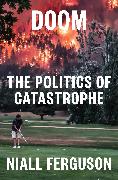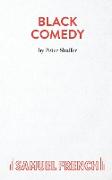Doom
BücherAngebote / Angebote:
Setting the great crisis of 2020 in broad historical perspective, Niall Ferguson challenges the conventional wisdom that our failure to cope better with disaster was solely a crisis of political leadership, as opposed to a more profound systemic problem.Disasters are by their very nature hard to predict. Pandemics, like earthquakes, wildfires, financial crises and wars, are not normally distributed, there is no cycle of history to help us anticipate the next catastrophe. But when disaster strikes, we ought to be better prepared than the Romans were when Vesuvius erupted, or medieval Italians when the Black Death struck. We have science on our side, after all. Yet the responses of a number of developed countries, including the United States, to a new pathogen from China were badly bungled. Why?The facile answer is to blame poor leadership. While populist leaders have certainly performed poorly in the face of the pandemic, more profound problems have been exposed by COVID-19. Only when we understand the central challenge posed by disaster in history can we see that this was also a failure of an administrative state and economic elites that had grown myopic over much longer than just a few years.Why were so many Cassandras for so long ignored? Why did only some countries learn the right lessons from SARS and MERS? Why do appeals to "the science" often turn out to be magical thinking? Drawing from multiple disciplines, including history, economics, public health, and network science, Doom is a global postmortem for a plague year. In books going back nearly twenty years, including Colossus, The Great Degeneration, and The Square and the Tower, Niall Ferguson has studied the pathologies that afflict modern America, from imperial hubris to bureaucratic sclerosis and online schism. Doom is the lesson of history that this country--indeed the West as a whole--urgently needs to learn--if we want to avoid the doom of irreversible decline.
Lieferbar in ca. 20-45 Arbeitstagen




